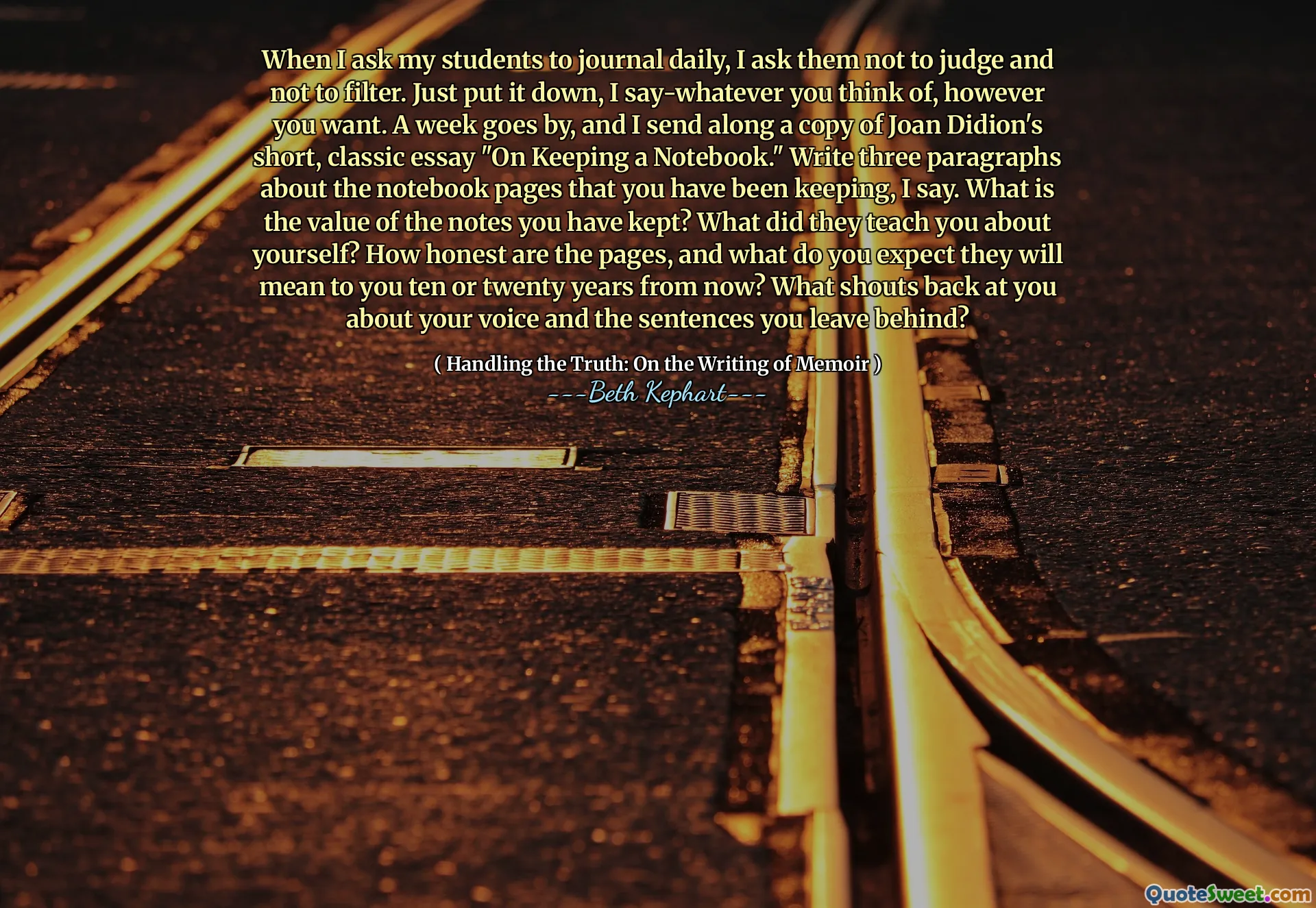
当我要求学生每天日记时,我要求他们不要判断而不是过滤。我说,只要放下它 - 无论您想到什么,您都需要。一个星期过去了,我发送了琼·迪迪恩(Joan Didion)简短的经典文章“保留笔记本”的副本。我说,写三段有关您一直保留的笔记本页面的段落。您保留的笔记的价值是什么?他们教你什么?这些页面有多诚实,您期望它们对您十到二十年的意义?什么向您大喊您的声音和您留下的句子?
(When I ask my students to journal daily, I ask them not to judge and not to filter. Just put it down, I say-whatever you think of, however you want. A week goes by, and I send along a copy of Joan Didion's short, classic essay "On Keeping a Notebook." Write three paragraphs about the notebook pages that you have been keeping, I say. What is the value of the notes you have kept? What did they teach you about yourself? How honest are the pages, and what do you expect they will mean to you ten or twenty years from now? What shouts back at you about your voice and the sentences you leave behind?)
贝丝·凯夫特(Beth Kephart)在她的书《处理真相:关于回忆录的撰写》中,鼓励她的学生每天进行日记,而不必担心审判或审查。她强调自由在纸上表达思想和感受的重要性,从而允许真实且未过滤的叙述。经过一周的练习,她介绍了琼·迪迪恩(Joan Didion)的文章“保留笔记本”,促使她的学生对他们的日记经历进行更深入的反思。
Kephart要求她的学生考虑从笔记本页面中获得的见解,诚实的水平以及他们如何看待这些著作将影响他们的未来自我。敦促他们思考他们记录的思想的重要性,这些单词如何随着时间的流逝产生共鸣,以及他们的写作揭示了他们的身份。这种反思过程不仅是一种自我发现的手段,而且是通过书面表达来探索个人声音不断发展的本质。






